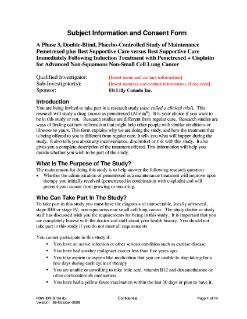Related Research Articles
The Nuremberg Code is a set of ethical research principles for human experimentation created by the court in U.S. v Brandt, one of the Subsequent Nuremberg trials that were held after the Second World War.

Informed consent is a principle in medical ethics and medical law that a patient should have sufficient information before making their own free decisions about their medical care. A healthcare provider is often held to have a responsibility to ensure that the consent that a patient gives is informed, and informed consent can apply to a health care intervention on a person, conducting some form of research on a person, or for disclosing a person's information. Informed consent is, in fact, a fundamental principle in the field of health protection, obviously wanting to mark the very close and unavoidable connection between the need for consent and the inviolability of the right to health. A health care provider may ask a patient to consent to receive therapy before providing it, a clinical researcher may ask a research participant before enrolling that person into a clinical trial, and a researcher may ask a research participant before starting some form of controlled experiment. Informed consent is collected according to guidelines from the fields of medical ethics and research ethics.

Clinical trials are prospective biomedical or behavioral research studies on human participants designed to answer specific questions about biomedical or behavioral interventions, including new treatments and known interventions that warrant further study and comparison. Clinical trials generate data on dosage, safety and efficacy. They are conducted only after they have received health authority/ethics committee approval in the country where approval of the therapy is sought. These authorities are responsible for vetting the risk/benefit ratio of the trial—their approval does not mean the therapy is 'safe' or effective, only that the trial may be conducted.

Human subject research is systematic, scientific investigation that can be either interventional or observational and involves human beings as research subjects, commonly known as test subjects. Human subject research can be either medical (clinical) research or non-medical research. Systematic investigation incorporates both the collection and analysis of data in order to answer a specific question. Medical human subject research often involves analysis of biological specimens, epidemiological and behavioral studies and medical chart review studies. On the other hand, human subject research in the social sciences often involves surveys which consist of questions to a particular group of people. Survey methodology includes questionnaires, interviews, and focus groups.
An institutional review board (IRB), also known as an independent ethics committee (IEC), ethical review board (ERB), or research ethics board (REB), is a committee that applies research ethics by reviewing the methods proposed for research to ensure that they are ethical. Such boards are formally designated to approve, monitor, and review biomedical and behavioral research involving humans. They often conduct some form of risk-benefit analysis in an attempt to determine whether or not research should be conducted. The purpose of the IRB is to assure that appropriate steps are taken to protect the rights and welfare of humans participating as subjects in a research study. Along with developed countries, many developing countries have established national, regional or local Institutional Review Boards in order to safeguard ethical conduct of research concerning both national and international norms, regulations or codes.
The Belmont Report is a report created by the National Commission for the Protection of Human Subjects of Biomedical and Behavioral Research. Its full title is the Belmont Report: Ethical Principles and Guidelines for the Protection of Human Subjects of Research, Report of the National Commission for the Protection of Human Subjects of Biomedical and Behavioral Research.
The Declaration of Helsinki is a set of ethical principles regarding human experimentation developed originally in 1964 for the medical community by the World Medical Association (WMA). It is widely regarded as the cornerstone document on human research ethics.
An ethics committee is a body responsible for ensuring that medical experimentation and human subject research are carried out in an ethical manner in accordance with national and international law.
National Commission for the Protection of Human Subjects of Biomedical and Behavioral Research was the first public national body to shape bioethics policy in the United States.
Therapeutic misconception is a common ethical problem encountered in human subjects research. It was originally described in 1982 by Paul Appelbaum and colleagues. The idea was introduced to the bioethics community in 1987. The formulation given by Appelbaum et al. in 1987 was the following: “To maintain a therapeutic misconception is to deny the possibility that there may be major disadvantages to participating in clinical research that stem from the nature of the research process itself.”

Principlism is an applied ethics approach to the examination of moral dilemmas that is based upon the application of certain ethical principles. This approach to ethical decision-making has been adopted enthusiastically in many different professional fields, largely because it sidesteps complex debates in moral philosophy at the theoretical level.
The Office for Human Research Protections (OHRP) is a small office within the United States Department of Health and Human Services (DHHS), specifically the Office of the Assistant Secretary for Health in the Office of the Secretary of DHHS, that deals with ethical oversights in clinical research conducted by the Department, mostly through the National Institutes of Health (NIH).
Human subject research legislation in the United States can be traced to the early 20th century. Human subject research in the United States was mostly unregulated until the 20th century, as it was throughout the world, until the establishment of various governmental and professional regulations and codes of ethics. Notable – and in some cases, notorious – human subject experiments performed in the US include the Tuskegee syphilis experiment, human radiation experiments, the Milgram obedience experiment and Stanford prison experiments and Project MKULTRA. With growing public awareness of such experimentation, and the evolution of professional ethical standards, such research became regulated by various legislation, most notably, those that introduced and then empowered the institutional review boards.
Biobank ethics refers to the ethics pertaining to all aspects of biobanks. The issues examined in the field of biobank ethics are special cases of clinical research ethics.
Return of results is a concept in research ethics which describes the extent of the duty of a researcher to reveal and explain the results of research to a research participant.
Various organizations have created guidelines for human subject research for various kinds of research involving human subjects and for various situations.
A community advisory board is a type of advisory board consisting of representatives of the general public who meet with representatives of an institution to relay information between the two groups. CABs are especially associated with clinical research, in which case they review the clinical research ethics associated with the human subject research which a medical research institution conducts. CABs are an aspect of community-based participatory research.
Beneficence is a concept in research ethics that states that researchers should have the welfare of the research participant as a goal of any clinical trial or other research study. The antonym of this term, maleficence, describes a practice that opposes the welfare of any research participant. According to the Belmont Report, researchers are required to follow two moral requirements in line with the principle of beneficence: do not harm and maximize possible benefits for research while minimizing any potential harm on others.
Respect for persons is the concept that all people deserve the right to fully exercise their autonomy. Showing respect for persons is a system for interaction in which one entity ensures that another has agency to be able to make a choice.
The Menlo Report is a report published by the U.S. Department of Homeland Security Science and Technology Directorate, Cyber Security Division that outlines an ethical framework for research involving Information and Communications Technologies (ICT).
References
- ↑ King, Ruth R. Faden, Tom L. Beauchamp, in collaboration with Nancy M.P. (1986). A history and theory of informed consent (first ed.). New York: Oxford University Press. pp. 216. ISBN 0-19-503686-7.
- ↑ The National Commission for the Protection of Human Subjects of Biomedical and Behavioral Research (April 18, 1979), "The Belmont Report", Ethical Principles and Guidelines for the Protection of Human Subjects of Research, retrieved 4 March 2012
- ↑ Emanuel, E. J.; Wendler, D.; Grady, C. (2000). "What Makes Clinical Research Ethical?". JAMA: The Journal of the American Medical Association. 283 (20): 2701–2711. doi:10.1001/jama.283.20.2701. PMID 10819955. S2CID 2029580.